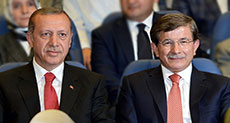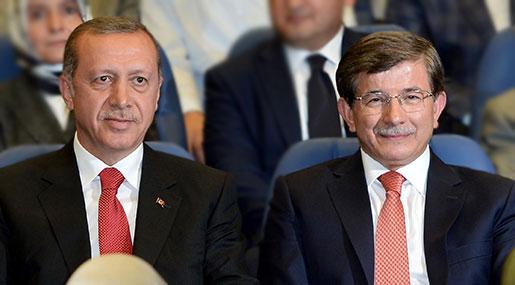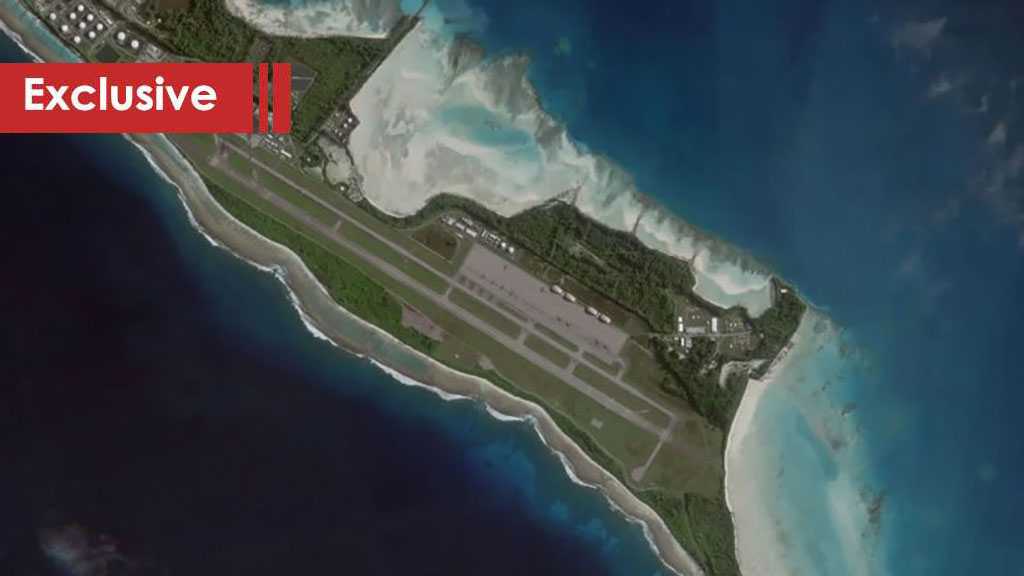The Pelican Brief Turkey Style...

Darko Lazar
Turkey's parliamentary system has taken another hit following an announcement by Prime Minister Ahmet Davutoglu that he would be stepping down on May 22.

Davutoglu's unprecedented fall from grace exposed a rift between himself and the all-powerful wizard of Turkey, aka President Recep Tayyip Erdogan.
But speaking in a quavering voice at the AKP headquarters in Ankara on Thursday, Davutoglu - who began his political career under Erdogan's guidance before becoming foreign minister in 2009 and eventually premier in 2014 - remained a loyal solider to the "end".
"You will never hear me say negative things about our president. My loyalty to him will last until the end," the clearly shaken Davutoglu said.
However, behind the cameras, the relationship between the two men has not exactly been brotherly in recent months, as Erdogan marches towards establishing an autocracy in Turkey and pursues his dream of being crowned Sultan.
According to Sinan Ulgen, Visiting Scholar at Carnegie Europe, "on the surface there were no divisions but obviously there were a number of areas where the two leaders have disagreed, which is why we have seen this development in Turkish politics. "
Erdogan, who is seeking to change his country's constitution in order to reshape the largely ceremonial presidency into an omnipotent executive position, has been purging Turkey's judiciary of enemies, jailing journalists and crushing all forms of dissent.
Davutoglu's reservations about Erdogan's ambitions - which perhaps clashed with some of his own - proved to be too much for Turkey's president. In another major step towards one-man rule in the country, Erdogan effectively ended a relationship that once represented the country's strongest political partnership.
"He [Davutoglu] did not actually resign," said Ozgur Ozdamar, Professor of International Relations at Turkey's Bilkent University.
"He was forced out of his post. He said that he would continue to serve as Prime Minister until the Extraordinary Congress on May 22. But we can consider him to be a retired politician," Ozdamar added.
Davutoglu's exit has been directly linked to the publication of an anonymous blog on May 1, which generated a lot of interest in Turkey.
Titled ‘The Pelican Brief' - a reference to John Grisham's bestseller about secret agendas and corruption within the American political establishment - the site directed a lengthy attack against Davutoglu, accusing him of being a traitor and selling out Erdogan.
The post, which came just days after the removal of Davutoglu's authority to appoint provincial party executives, was especially interesting when it emerged that it had been written by pro-Erdogan journalists and with the president's blessing.
Expected to play a backseat role since his appointment as premier twenty months ago, Davutoglu tried to act independently on a number of issues.
In recent months, he championed a deal with the European Union to stem the flow of refugees to Europe, securing roughly 3 billion US dollars, as well as visa-free travel for Turkish national coming into the EU. According to Turkish insiders, Davutoglu's access to leading western politicians and the international attention centered on the negotiations angered Erdogan, who felt that his once-loyal devotee was trying to carve out his own legacy.
Erdogan-Davutoglu tensions reportedly reached boiling point over news that the Americans preferred doing business with Davutoglu. The Turkish president grew increasingly suspicious of Davutoglu's May 5 appointment with US President Barack Obama, which Erdogan saw as part of a possible victory lap.
Fearing a power struggle during which Davutoglu would try to maximize his powers as prime minister, Erdogan, who mastered the dirty game of politics, made a decision to terminate his former ally.
All of this would certainly go a long way in explaining Davutoglu's lack of enthusiasm for a presidential system.
"At the heart of this rift, at the heart of this political crisis, was Mr. Davutoglu's lack of full commitment to change the Turkish system into a presidential system," Ozgur Ozdamar said.
Current energy minister and Erdogan's son-in-law, Berat Albayrak, has been named as a possible successor to Davutoglu. Justice Minister Bekir Bozdag, Transport Minister Binali Yildirim, and government spokesman Numan Kurtulmuş, all known to be Erdogan loyalists, are also in the running for Turkey's [theoretically] top job.
But Davutoglu's departure has delivered a very simple message to Turkey's political establishment: Erdogan is very much the man in charge.
As such, the question of who Turkey's next prime minister is going to be is not particularly relevant.
Ozdamar thinks that, "The only thing expected from the new prime minister is full commitment to the constitutional change towards the presidential system."
"There will be a lot of changes in Turkish politics in the 2016. This might spill over into 2017, because this was just the first step towards the presidential system. Mr. Erdogan now got rid of a not-so-committed prime minister. The next step is early elections in the late summer or early fall. After that, if Mr. Erdogan is able to keep the two smaller parties out of the parliament, he will gain 400 MPs and comfortably change the constitution and change the system in Turkey from a parliamentary one to a presidential one," Ozdamar opined.
Erdogan's pursuit of a presidential system has added another element of turmoil to a country facing some of its most serious challenges in decades.
Those challenges stem largely from policies adopted by Erdogan and his AKP, who have shown themselves remarkably apt at spinning so-called security concerns into political support. From facilitating a return to civil war in order to secure election victories, to supporting terrorist groups fighting in Syria, the AKP has given way to the bloodiest years in Turkey's recent history.
With Davutoglu's removal, however, Erdogan may be looking to reverse some of his recent setbacks - especially when it comes to Syria.
Notably, Davutoglu is the chief architect of Turkey's failed Syria policy, and it remains to be seen whether his departure may indeed provide Erdogan with a graceful exit from the Syrian conflict.
Source: al-Ahed News




